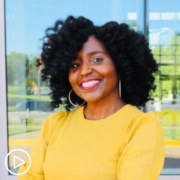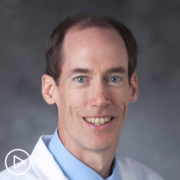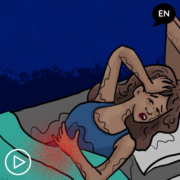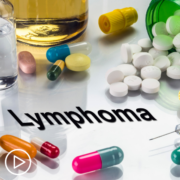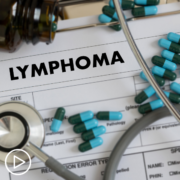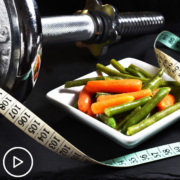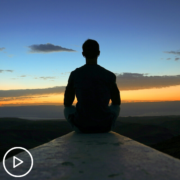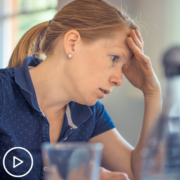Leading up to the Living Rare, Living Stronger NORD Patient and Family Forum on June 26th – June 27th, we interviewed NORD’s Director of Education Programs, Rebecca Aune.
1. Please tell us about yourself and your work at NORD.
My name is Rebecca Aune, and I am the Director of Education Programs at the National Organization for Rare Disorders (NORD). I lead the Educational Initiatives department, which oversees NORD’s education programs for health care professionals, patients and caregivers, and the Students for Rare network.
2. What specific challenges do you see that affect patients in the rare disease community?
Millions of people living with rare disease are currently on or have lived through a long and arduous diagnostic odyssey to get to an accurate diagnosis and “name the beast.” Identifying a specialist that understands one’s rare condition, research being conducted to better understand it, available treatments and treatment guidelines if there are any, and who will help make appropriate referrals for other care and services can also be challenging and overwhelming.
3. What can be done to overcome these challenges?
Educating patients and caregivers to be their own advocates, to know their rights, and be part of decision-making process alongside their care team can help rare patients overcome these challenges. Weathering these challenges also requires taking care of both mental and physical health and finding a support system, which are key components to our work at NORD to help those affected by rare disease live their best lives while we fight for better treatments and cures.
Simultaneously, we provide accredited continuing medical education to equip health care professionals and trainees with the information they need to shorten the timeline to diagnosis and improve patient outcomes. Reducing and overcoming these challenges requires a whole-of-community approach.
4. What are some resources available to help patients impacted by a rare disease?
NORD is an umbrella organization with more than 330 member organizations advocating for communities of people living with rare conditions. A newly diagnosed patient may not be aware that there is already an organization working on their behalf alongside NORD, and connecting with others living with one’s rare disease can be a great starting point.
NORD has reliable reports written by experts explaining rare diseases available on our website. Additionally, for many conditions, we have a short video explaining the disease in the NORD Rare Disease Video Library. We also have a host of webinar recordings on a variety of educational topics available on-demand.
The Living Rare, Living Stronger NORD Patient and Family Forum offers a full weekend of opportunities to meet and learn from others living with rare diseases who will discuss a variety of topics, participate in wellness activities, join a discussion group to chat with others, and tune in to the Rare Impact Awards show to celebrate leaders in the rare disease community.
5. What do you wish everyone knew about rare diseases?
While each disease classified as “rare” may affect fewer than 200,000 people in the United States and some diseases are considered “ultrarare,” collectively, rare diseases are not rare! It is estimated that more than 25 million people are living with a rare condition in the United States alone. We all seem to know someone living with a rare cancer, or spina bifida, or multiple sclerosis, or narcolepsy, or restless legs syndrome, or have heard of Duchenne muscular dystrophy. Community support and awareness are critical to the present and future of the rare community.
6. What are you looking forward to the most during the 2021 Living Rare, Living Stronger NORD Patient and Family Forum?
We have a stellar faculty of speakers that came together to discuss relevant issues affecting the rare disease community, including parenting a child with a rare disease; aging with a rare disease; working while living with a rare disease; navigating health insurance, social security disability and patient assistance programs; getting involved in rare disease research, and more. I think the content offers variety and a little something for everyone. As well as education, the Forum offers entertainment beginning with a kickoff concert by Red Grammer on Friday, June 25 and closing with a Broadway performance during the Rare Impact Awards on Monday, June 28.
7. How can people register to attend the Forum, and when is the last day to register?
People can register for Living Rare, Living Stronger NORD Patient and Family Forum featuring the Rare Impact Awards by visiting https://rarediseases.org/living-rare-forum. The kickoff concert is on Friday, June 26, and programming begins on Saturday, June 27. However, if you cannot attend the conference live, you can register and access the content on-demand for an additional 30 days after the forum.
8. What will attendees learn about and experience at the event?
Attendees will be experience general sessions on a variety of topics, including building resilience, the sibling experience, examples of patients partnering with health care professionals in their care, and an opportunity to hear about cutting edge research being conducted in rare disease. Additionally, attendees will be able to select to attend breakout sessions according to their interests. Wellness activities such as a meditation sound bath and chair yoga will be offered, as well as kids’ activities each day provided through Project Sunshine’s TelePlay program. Also, participants can tune in with their family and friends to entertainment opportunities such as the kickoff concert by Red Grammer and the Rare Impact Awards show. The forum is open to interested members of the press as well.
9. Are there opportunities to meet and connect with other rare patients and caregivers?
A variety of live discussion group opportunities will be offered where attendees can go meet others and discuss topics such as getting involved in rare disease advocacy, living undiagnosed, rare despair and bereavement, being the parent of a newly diagnosed pediatric patient, being a teen living with rare disease, and much more. Attendees can meet other members of the rare disease community in one-on-one meetings on the conference web platform. Kids can have fun and meet other kids through Project Sunshine’s TelePlay program, offering virtual activities for kids ages 5-9 on Saturday, June 26 and 10-14 on Sunday, June 27.
10. This Sunday is Father’s Day, are there any key sessions in the Forum you’d like to highlight for our rare community fathers or parents?
In general, there are several topics that I think could be very helpful for an adult living with a rare disease who is a parent – or for parents of a child living with a rare disease – including, but not limited to: Shared Decision-making with Your Care Team, Getting Involved in Clinical Research, Debunking the Myths of Palliative Care, and Finding Your Community and Building Your Support Network.
If the father in the family is the patient, we have a discussion group for Rare Men that may be helpful.
For fathers in families living with a genetic/heritable condition, the breakout “Rare in the Family” may be a helpful resource.
If a father has a child living with a rare disease who has a sibling(s), the plenary session about The Rare Sibling Experience may help to understand some sibling perspectives and considerations.
If a father has a child who is still undiagnosed, there is a discussion group on Saturday, “Living Undiagnosed: The Endless Diagnostic Odyssey.”
Also, these discussion groups will bring parents of a child living with a rare disease together: “Parents of Newly Diagnosed Rare Pediatric Patients” on Saturday and “Parenting Rare Children” on Sunday.
For a bereaved father or father experiencing anticipatory or ambiguous grief, we offer a Breakout session on “Coping with Grief and Anticipatory Grief.” We also will hold a live discussion group on Saturday about “Rare Despair and Bereavement.”
11. How do you see the rare diseases field changing moving forward? What are the next big educational opportunities?
We hope to continually see more and more treatments approved each year, and we hope to see the scientific community find cures for rare diseases. We anticipate much to come in gene therapy and gene editing, and advancement in treatments due to data sharing. NORD will continue to encourage patients to participate in registries, natural history studies, bio banks and clinical trials. As an organization, NORD will continue to move forward with educating patients about their rights and how to manage their health and cope with the stress of living with serious and chronic illnesses.
12. For someone just learning about NORD or a rare disease, what’s the best place to start?
NORD’s Rare Disease Database provides reliable information about rare conditions written by experts. Also, finding your community is important to find specialists, learn about research, and find support. NORD’s Organizational Database is a great place to start. We also are offering a session at Living Rare, Living Stronger called “Finding Your Community and Building Your Support Network.
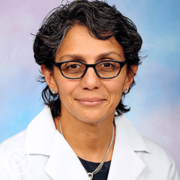
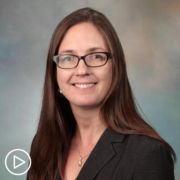 Dr. Jeanne Palmer: Why Is It Important for You to Empower Patients?
Dr. Jeanne Palmer: Why Is It Important for You to Empower Patients?